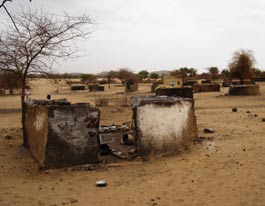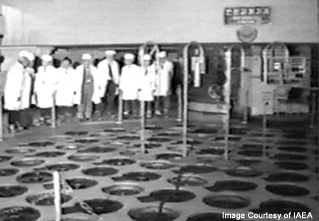
United Nations Security Council Resolution 1718 was adopted unanimously by the United Nations Security Council on October 14, 2006. The resolution, passed under Chapter VII, Article 41, of the UN Charter, imposes a series of economic and commercial sanctions on the Democratic People's Republic of Korea in the aftermath of that nation's claimed nuclear test of October 9, 2006.

United Nations Security Council Resolution 1928, adopted unanimously on June 7, 2010, after recalling resolutions 825 (1993), 1540 (2004), 1695 (2006), 1718 (2006), 1874 (2009) and 1887 (2009) on the topics of North Korea and nuclear weapons, the Council extended the mandate of a panel of experts monitoring sanctions against the country until June 12, 2011.

United Nations Security Council Resolution 1945, adopted on October 14, 2010, after recalling previous resolutions on the situation in Sudan, the Council extended the mandate of an expert panel monitoring an arms embargo and other sanctions on groups that "impede peace in Sudan" until October 19, 2011.

United Nations Security Council Resolution 1982, adopted unanimously on May 17, 2011, after recalling all previous resolutions on the situation in Sudan, the Council extended the mandate of an expert panel monitoring the arms embargo and other sanctions against the country until February 19, 2012.

United Nations Security Council Resolution 1651, adopted unanimously on 21 December 2005, after recalling previous resolutions on the situation in Sudan, particularly resolutions 1556 (2004) and 1591 (2005), the Council extended the mandate of an expert panel monitoring sanctions against and violations of human rights in the Darfur region until 29 March 2006. It was the last Security Council resolution adopted in 2005.

United Nations Security Council Resolution 1654, adopted unanimously on January 31, 2006, after recalling previous resolutions concerning the situation in the Democratic Republic of the Congo, including resolutions 1616 (2005) and 1649 (2005), the Council extended the mandate of an expert panel monitoring the arms embargo against the country until July 31, 2006.

United Nations Security Council Resolution 1984, adopted on June 9, 2011, after recalling resolutions 1696 (2006), 1737 (2006), 1747 (2007), 1803 (2008), 1835 (2008), 1887 (2009) and 1929 (2010) concerning Iran and non-proliferation, the Council extended the mandate of an expert panel monitoring sanctions against the country over its nuclear program for a period of one year.

United Nations Security Council Resolution 1985, adopted unanimously on June 10, 2011, after recalling resolutions 825 (1993), 1540 (2004), 1695 (2006), 1718 (2006), 1874 (2009), 1887 (2009), 1928 (2010) on the topics of North Korea and nuclear weapons, the Council extended the mandate of an expert panel monitoring sanctions against the country until June 12, 2012.

United Nations Security Council Resolution 1665, adopted unanimously on March 29, 2006, after recalling previous resolutions on the situation in Sudan, particularly resolutions 1556 (2004), 1591 (2005) and 1651 (2005), extended the mandate of an expert panel monitoring sanctions against and violations of human rights in the Darfur region until September 29, 2006.

United Nations Security Council Resolution 1689, adopted unanimously on June 20, 2006, after recalling all previous resolutions on the situation in Liberia and West Africa, the Council decided to continue sanctions against the import of diamonds from the country for six months, though similar restrictions relating to timber imports were lifted.

United Nations Security Council Resolution 1713, adopted unanimously on September 29, 2006, after recalling previous resolutions on the situation in Sudan, particularly resolutions 1556 (2004), 1591 (2005), 1651 (2005) and 1665 (2006), the Council extended the mandate of an expert panel monitoring sanctions against and violations of human rights in the Darfur region until September 29, 2007, and requested the Secretary-General to add another expert to the team.
United Nations Security Council Resolution 1761 was unanimously adopted on 20 June 2007.
United Nations Security Council Resolution 1779 was unanimously adopted on 28 September 2007.
United Nations Security Council Resolution 1841 was unanimously adopted on 15 October 2008.

United Nations Security Council Resolution 2040 was unanimously adopted on 12 March 2012.

United Nations Security Council Resolution 2049 was unanimously adopted on 7 June 2012.

On March 4, 2015, the United Nations Security Council unanimously adopted Resolution 2207 on North Korea. The resolution extended the mandate of the Panel of Experts, which supports activities of the ‘1718 Sanctions Committee’, for one year to April 5, 2016.

The UN Security Council Sanctions Committee on North Korea is a subsidiary body established in 2006 by the UN Security Council's resolution 1718 in response to North Korea's first nuclear test and its other nuclear proliferation efforts.

















